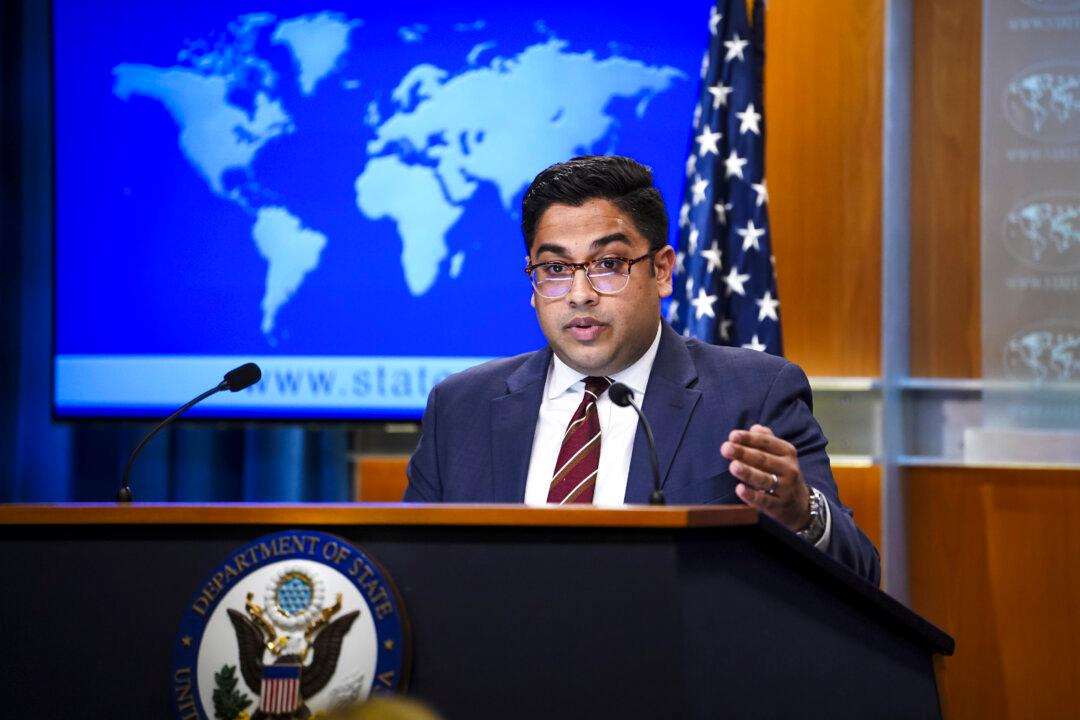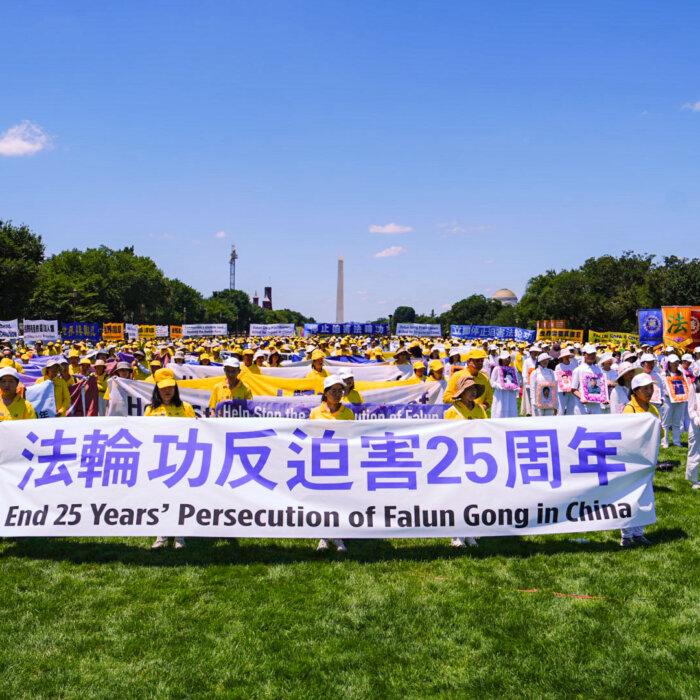The State Department “won’t hesitate to take appropriate actions” against the Chinese Communist Party’s (CCP’s) continued persecution of the spiritual group Falun Gong, a spokesperson said on July 18.
Falun Gong, also known as Falun Dafa, is a spiritual discipline that was introduced to the public in China in 1992. Its practitioners live by the three principles of truth, compassion, and forbearance and do five meditative exercises of the practice regularly. In less than a decade after its introduction, 70 million to 100 million people were practicing Falun Gong, according to official estimates in China.
Then, in 1999, then-paramount CCP leader Jiang Zemin issued orders to “eradicate” Falun Gong using methods including illegal arrests, propaganda, brainwashing, forced labor, and torture. July 20 marks the anniversary of the persecution campaign, which has continued abated for 25 years.
A month earlier, on June 10, 1999, Jiang ordered the creation of the 610 Office, an extra-legal police force to wipe out the practice. Shortly after midnight on July 20, these officers raided the homes of thousands of Falun Gong practitioners and made mass illegal arrests.
State Department principal deputy spokesperson Vedant Patel did not preview specific actions but said the department has been watching China’s actions on human rights.
“We have seen the PRC take a number of steps over the past many years that we view as a crackdown on basic human rights,” he said. “It is something that we will continue to raise with PRC officials directly.”
Friends of Falun Gong, a nonprofit founded in 2000 by Americans concerned about the persecution, published a letter on July 18 calling on Secretary of State Antony Blinken to request new sanctions on those who have participated in the persecution of Falun Gong.
The secretary in 2021 and 2022 announced sanctions on two CCP officials for human rights violations in persecuting Falun Gong, and the Department of Justice has also indicted a number of CCP agents for their participation in the persecution, the advocates noted.
“Such actions are welcome, but more must be done to incentivize Chinese officials at all levels to refrain from engaging in human rights violations targeting Falun Gong practitioners in China and the United States,” the letter reads.
The State Department called on the CCP to open itself up to an independent probe into the country’s organ transplantation system, saying it “should welcome independent observers to investigate the veracity of these reports.”
“Forced organ harvesting in China appears to be targeting specific ethnic, linguistic, or religious minorities held in detention, often without being explained the reasons for arrest or given arrest warrants, at different locations,” the report reads, quoting from a joint statement from by a group of U.N. human rights experts in 2021.
Introduced by Rep. Scott Perry (R-Pa.), the bill calls for sanctions and other penalties against the CCP in order to end its practice of live organ harvesting.
The bill next needs Senate approval. Should it pass and be signed into law by the president, the State Department would need to coordinate with the Department of Defense and the U.S. Agency for International Development to determine whether the CCP’s persecution of Falun Gong constitutes an “atrocity” defined as war crimes, crimes against humanity, and genocide.
Individuals who participated in the persecution would have their visas revoked and be inadmissible to the United States.








